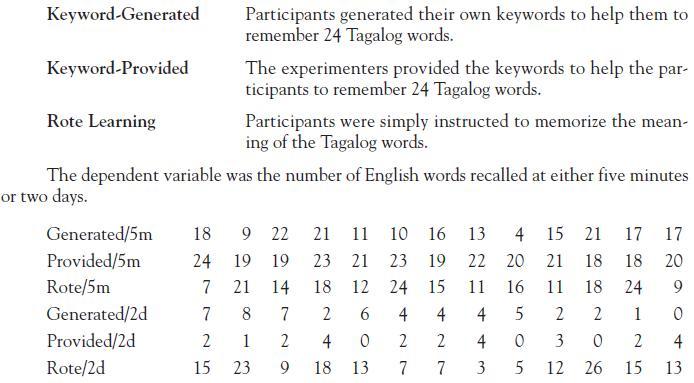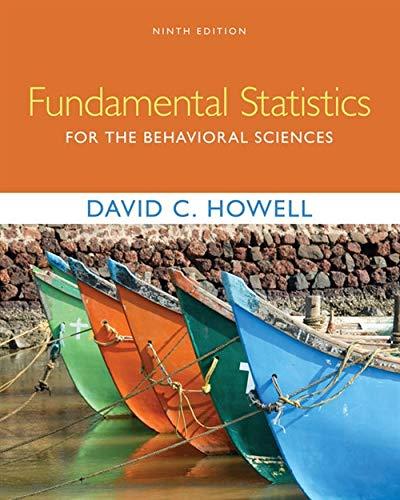Calculate d for the two main effects for the data in Exercise 17.1. (Choose two groups to
Question:
Calculate d for the two main effects for the data in Exercise 17.1. (Choose two groups to compare that seem reasonable from what you understand about the design of the
experiment.)
Exercise 17.1
Thomas and Wang (1996) looked at the effects of memory on the learning of foreign vocabulary.
Most of you have probably read that a good strategy for memorizing words in a foreign language is to think of mnemonic keywords. For example, in Tagalog (the official language of the Philippines), the word for eyeglasses is salamin. That word sounds much like our “salmon,”
so a possible strategy would be to imagine a picture of a salmon wearing glasses. This type of encoding strategy has been recommended for years, and people who try it generally report good immediate recall of foreign vocabulary. This fits nicely with dual-coding theories, in which the word is viewed as being stored both lexically and visually.
However, the studies that have looked at this phenomenon have generally asked the same participants to repeatedly recall items at several different times. Since each recall session means an additional practice session, practice and time effects are confounded. To get around this problem, Thomas and Wang used different participants at the two recall intervals. Data with very nearly the same means and variances as theirs are presented below.
Thomas and Wang ran a study in which they divided participants into one of three “Strategy”
groups, and then tested them at one of two times (five minutes or two days). The strategies were
Step by Step Answer:

Fundamental Statistics For The Behavioral Sciences
ISBN: 9781305652972
9th Edition
Authors: David C. Howell





